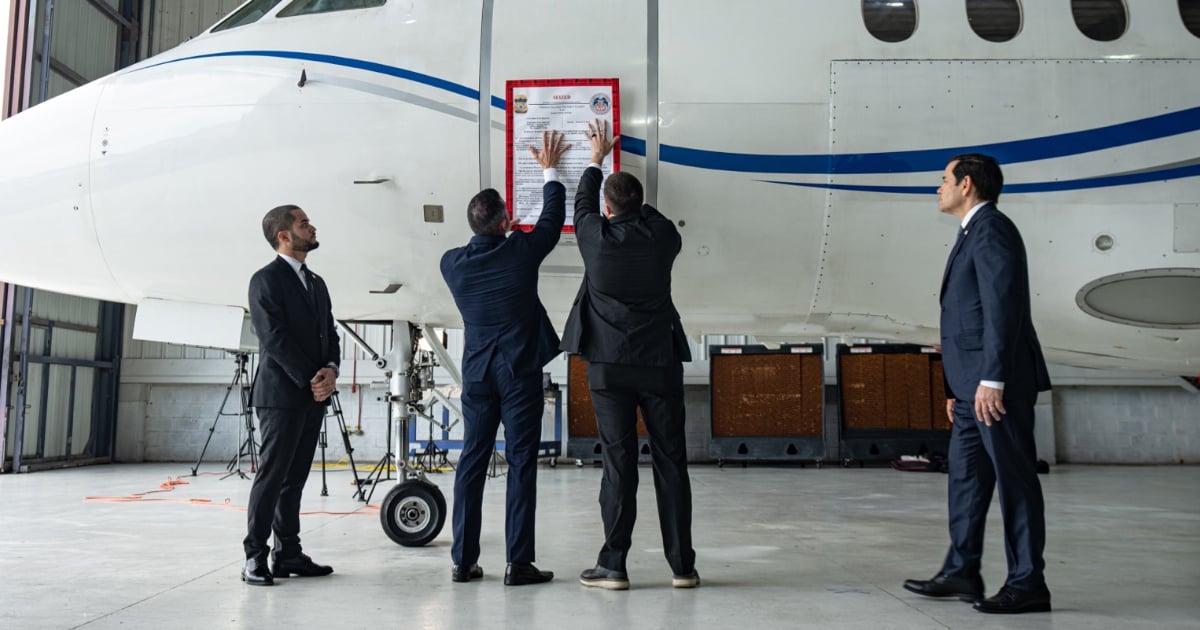The seizure of a plane linked to the Venezuelan government in the Dominican Republic, with U.S. Secretary of State Marco Rubio present, has ignited a fiery response from the Cuban regime. Miguel Díaz-Canel, Cuba's leader, and Foreign Minister Bruno Rodríguez have vocally condemned the action taken by the Trump administration, denouncing it as an act of "modern piracy" against their regional ally.
Díaz-Canel criticized the U.S. government, stating, "The United States demonstrates its disregard for international law by illegally confiscating a Venezuelan plane. This act qualifies as modern piracy and is a new display of their commitment to the Monroe Doctrine, a neocolonial instrument of domination."
Meanwhile, Foreign Minister Rodríguez-Parrilla specifically targeted Secretary Rubio, accusing him of trying to become the "Sheriff" of Latin America and the Caribbean through the illegal seizure of a Venezuelan aircraft. He further commented that such actions are "reprehensible and arbitrary acts of modern piracy that violate International Law and the UN Charter."
The aircraft seizure took place on February 6, 2025, citing violations of U.S. sanctions, export controls, and money laundering regulations. The plane, a Dassault Falcon 200, was used by senior officials of Nicolás Maduro's government for international travel.
This move is part of a series of actions that the United States has undertaken against the Venezuelan government in recent months. Back in September 2024, the U.S. confiscated another official Maduro aircraft in the Dominican Republic, arguing that its acquisition breached U.S. sanctions and export control laws.
The Venezuelan government has condemned these actions as "recurring criminal practices" and has stated it reserves the right to pursue legal actions. Such seizures have heightened tensions between Washington and Caracas, especially following Venezuela's controversial elections and U.S. sanctions on the Venezuelan energy sector.
For their part, Cuba and Venezuela share a symbiotic relationship, with Havana benefiting from Venezuelan resources to sustain its economic model, while Caracas has relied on Cuban expertise in social control and political repression. Despite economic challenges and dwindling Venezuelan support, the alliance remains vital for both regimes in their struggle to maintain power amid external pressures.
Impact of the Plane Seizure on Cuban-Venezuelan Relations
How has the plane seizure affected U.S.-Venezuelan relations?
The seizure has escalated tensions between the United States and Venezuela, adding to the strain caused by recent controversial elections in Venezuela and U.S. sanctions on the Venezuelan energy sector.
Why does Cuba rely on Venezuela?
Cuba relies on Venezuelan resources to support its economic model, while also providing Venezuela with expertise in social control and political repression.
What is the Monroe Doctrine?
The Monroe Doctrine is a U.S. policy dating back to the 19th century, asserting opposition to European colonialism in the Americas and often used to justify U.S. intervention in the region.
